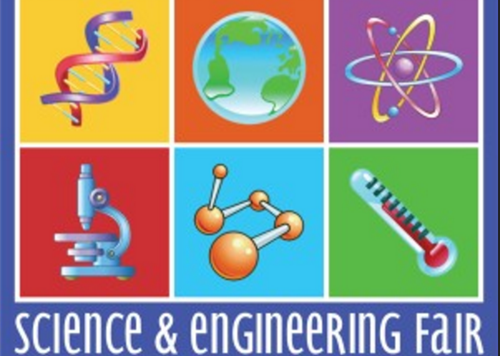
Thamer International School proudly announces the beginning of the T.I.S. Science and Engineering Fair.
Clearly, any school project assigned to a student should be useful. Surprising to some, a science fair project is one of the best learning experiences a student can undertake.
What makes a science fair project such a great learning experience is that it involves so much more than science. The research report will most likely be the longest paper the student has ever written (integrating with English Department). The bibliography for the report will also be the first ever for some students. While library research is still important, these reports are a great way to hone computer research skills, as well as to learn the ins and outs of common office programs, such as word processors and spreadsheets. Most projects also involve a good deal of Math, and all students get an opportunity to enhance their presentation skills when they prepare their display boards and discuss their projects with the judges.
A science fair project will also have a longer duration than any other assignment a student has done. In contrast to the typical school homework due the next day or perhaps a week hence, a science fair project requires a student to learn to plan over one or two months, a skill of immense importance in adulthood.
Students learn even more about communications skills. They learn the importance of selecting topics and fine-tuning their presentations in ways that will make them most likely to impress science fair judges.
Science fairs are a great way for students to become more knowledgeable about how the world around them works.
Preparing a science fair project is an excellent example of what education experts call active learning or inquiry (also "hands-on" learning). It is a very effective instructional method, indeed, it is recommended as a cornerstone of successful science teaching.
Rules and procedure:
1. Each student may enter with only one project.
2. Team projects may have a maximum of four members.
3. Every student must complete a Research Plan.
4. Each student or team must submit a (maximum) 250-word, one-page abstract which summarizes his work. The abstract must describe research conducted by the student.
5. Each student should display a project data book and a research paper.
SCIENCE FAIR FOUR MAJOR COMPONENTS:
The Science fair project can be divided into four major components or parts.
1. The experiment:
1. choosing a topic.
2. performing an experiment.
2. The Research Paper (report):
1. research about your topic and closely related topics.
2. summarize the experiment and draw conclusions from the experiment.
3. write a properly formatted and cited research paper.
3. The Visual Display:
1. prepare a backboard that illustrates the complete science project.
2. display equipment and materials needed to explain the project.
4. The Oral Presentation:
1. present orally a summary of the project to your teacher, classmates, or judges.
2. share and explain all phases of the project in an open setting.
T. I. S.
Administration